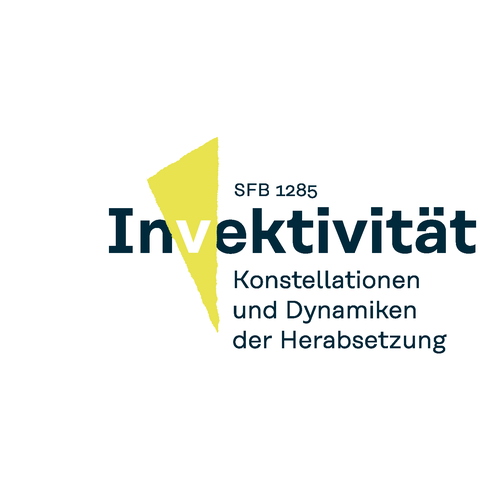Collaborative Research Centers
Table of contents
SFB 1285: Invectivity. Constellations and dynamics of disparagement
Phenomena of vituperation and degradation, shaming and exposure can be understood as fundamental operations of social communication across epochs and cultures. As moments of disruption, stabilization and dynamization of social orders, they have the potential to form communities and shape societies; in doing so, they are both destructive and productive. The research network summarizes such phenomena under the term "invectiveness". Manifestations and functions of the invective - understood as a realized mode of invectivity - are not subject to a rigid pattern, but occur in complex, historically variable constellations in medial, political, social and aesthetic terms. A broad spectrum of studies, ranging from antiquity to the present, will provide the empirical basis for an analysis of the complex constellations of invectivity. With the concept of invectiveness, the research network aims to develop a new perspective of cultural studies research in order to make the preconditions and effects of disparaging-destructive communication describable across contexts and thus, for the first time, to place the central role that communication operating with polemogenic potential plays for societies comprehensively in the focus of research.
SFB 804: Transcendence and public spirit (2009-2014)
The social sciences, humanities and cultural studies have once again increasingly turned their attention to the topic of religion and intensively discussed its role as a social organizing force. At the same time, there has been a debate about the socio-moral foundations of modern societies. The Collaborative Research Center takes up both strands of discussion, but turns them into a systematic question by conceptually linking "transcendence" and "public spirit" as the discursive and practical constitutive resources of social and political orders.
In this context, "transcendence" refers to those discourses and practices that justify social and political orders by recourse to the construction of unavailabilities. The concept of the transcendent cannot therefore be reduced to the Christian religion, monotheism or religion in general. The focus is also and especially on those forms of "transcendence" that are not assigned to the field of religion (e.g. "civil religion", legends of origin and provenance, scientistic belief in progress, "art religion").
A process of generating and asserting meaning is considered as "common sense", which in its double directionality - as an individual sense for the common and as a common sense of individuals - creates a common horizon of action and behavior for social and political orders.
The analytical categories of "transcendence" and "common sense" thus provide a new perspective for clarifying the fundamental question of the prerequisites, conditions and resources for the constitution and stability of social and political orders: What significance do "transcendences" have for the mobilization of community resources for action? Do assertions of common sense themselves have a "transcendent" status? The project examines whether and how discourses and practices of "transcendence" generate "public spirit" and whether and how common horizons of action and behavior are based on a framework of "transcendence". The resulting interrelationships, ambivalences and conflicts are the subject of empirical and systematic investigations.
The individual sub-projects take an exemplary and historical-systematic comparative approach to social and political formations of order from antiquity to the present - such as religious communities, urban contexts, courtly societies, national state formations, democratic and republican, even totalitarian orders or certain professional and social groups (artists, engineers, architects, nobles, scholars, priests, politicians) - as their respective objects of investigation.
Homepage of the SFB 804
Topics and perspectives
SFB 537: Institutionality and Historicity (1997-2008)
The Collaborative Research Center 537, which focuses on cultural and social sciences, analyses processes of institutional foundation, stabilization and transformation of social orders from Classical Studies to the present. The "institutional" of orders of communication and action is seen in mechanisms and structures through which the fundamental principles (e.g. guiding ideas, value patterns) of an order of action and communication are made visible in symbolic forms (e.g. also in rituals). The resulting "embodiments" of assertions of order and claims to legitimacy are examined for their effectiveness, whereby not fixed orders are the guiding theme of the research, but assertions of order, not unquestioned validity, but claims to validity, not institutional fulfilment of norms, but stylizations of actions and roles. In other words, it deals with the fundamental problems of combining historical and systematic disciplines. It contributes to a better understanding of "political" legitimation patterns and crises, for example through studies of the political and social stabilization achievements of the Roman Republic or the (culturally shaped) centralization and channelling of power at the courts of knights and princes. However, a wide range of references to contemporary social and political problems also arise from topics such as the genesis and mode of operation of constitutions (long before the political ones since the 18th century, even the monastic ones since the 12th century), from the comparative study of representative bodies (from the Greek polis to modern parliaments) and not least from contributions to research into the transformation process following the collapse of state socialism.
Project description and sub-projects


